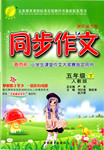题目内容
Transport Guide
The Brisbane City Council (BCC) is responsible for bus and ferry services with in the city limits and suburbs. Most buses will either arrive at the city or an interchange where connecting buses can be caught.BCC buses operate from 5:30 am to 11:00 pm Monday to Thursday and 5:30 am to 12:00 a m on Fridays. On weekends and public holidays buses operate less frequently Pre-paid bus tickets can be purchased from the QUT (Queensland University of Technology)bookshop, the campus news agency, most other news agencies and general stores, and any BCC Customer Service Centre. Short-term students at QUT cannot use their ID cards to gain a discount fare on BCC public transport. You will need to buy an adult ticket to travel. Bus fares are dependent on the number of zones you have to travel. There are several types of ticket:
| Zone | Cost (AUD) | |||||
| Single | Daily | Off-peak Daily | Ten-Trip Saver | Weekly | Monthly | |
| 1 | 2.50 | 4.20 | 3.50 | 16.80 | 16.80 | 67.20 |
| 2 | 2.90 | 5.00 | 4.10 | 20.00 | 20.00 | 80.00 |
| 3 | 3.30 | 5.80 | 4.70 | 23.20 | 23.20 | 92.80 |
Daily: unlimited travel within the zones.
Off-peak Daily: discounted unlimited travel between 9:00 am and 3:30 pm and after
7:00 pm Monday to Friday, and all day on weekends and public holidays.
Weekly: unlimited travel within the zones for one week from the date of issue.
Monthly: unlimited travel within the zones for one calendar month from the date of issue.
Ten-trip Saver: 10 trips at any time within the zones on buses and ferries only.
Transport routes, timetables and fare information are available from:
Public Transport Information Centre
69 Ann Street (corner of George St)
Brisbane City
Phone l3 12 30(Transport Information Service)
【小题1】 The transport guide above is most likely provided by .
| A.Public Transport Information Centre | B.the Brisbane City Council |
| C.Queensland University of Technology. | D.BCC Customer Service Centres |
| A.buses are scheduled as usual on weekends and public holidays |
| B.regular students at QUT need to buy adult tickets |
| C.Pre-paid tickets can be bought from the Public Transport Information Centre |
| D.Ten-trip Savers can be used at off-peak time |
| A.Single. | B.Weekly. | C.Off-peak Daily. | D.Ten-trip Saver. |
【小题1】C
【小题1】D
【小题1】B
解析

 春雨教育同步作文系列答案
春雨教育同步作文系列答案
|
A. introduction B. company C. accidentally D. against AB. sped AC. apparent AD. between BC. institutional BD. context CD. influenced |
Comparisons were drawn between the development of television in the 20th century and the spread of printing in the 15th and 16th centuries. Yet much had happened __47__. As was discussed before, it was not until the 19th century that the newspaper became the dominant pre-electronic medium, following in the wake of the pamphlet and the book and in the __48__ of the periodical. It was during the same time that the communications revolution __49__ up, beginning with transport, the railway, and leading on through the telegraph, the telephone, radio, and motion pictures into the 20th-century world of the motor car and the airplane. Not everyone sees that process in perspective. It is important to do so. It is generally recognized, however, that the __50__ of the computer in the early 20th century, followed by the invention of the integrated circuit during the 1960s, radically changed the process, although its impact on the media was not immediately __51__. As time went by, computers became smaller and more powerful, and they became “personal” too, as well as __52__, with display becoming sharper and storage capacity increasing. It was within the computer age that the term “information society” began to be widely used to describe the __53__ within which we now live. The communications revolution has __54__ both work and leisure and how we think and feel both about place and time, but there have been controversial views about its economic, political, social and cultural implications. “Benefits” have been weighed __55__ “harmful” outcomes. And generalizations have proved difficult.